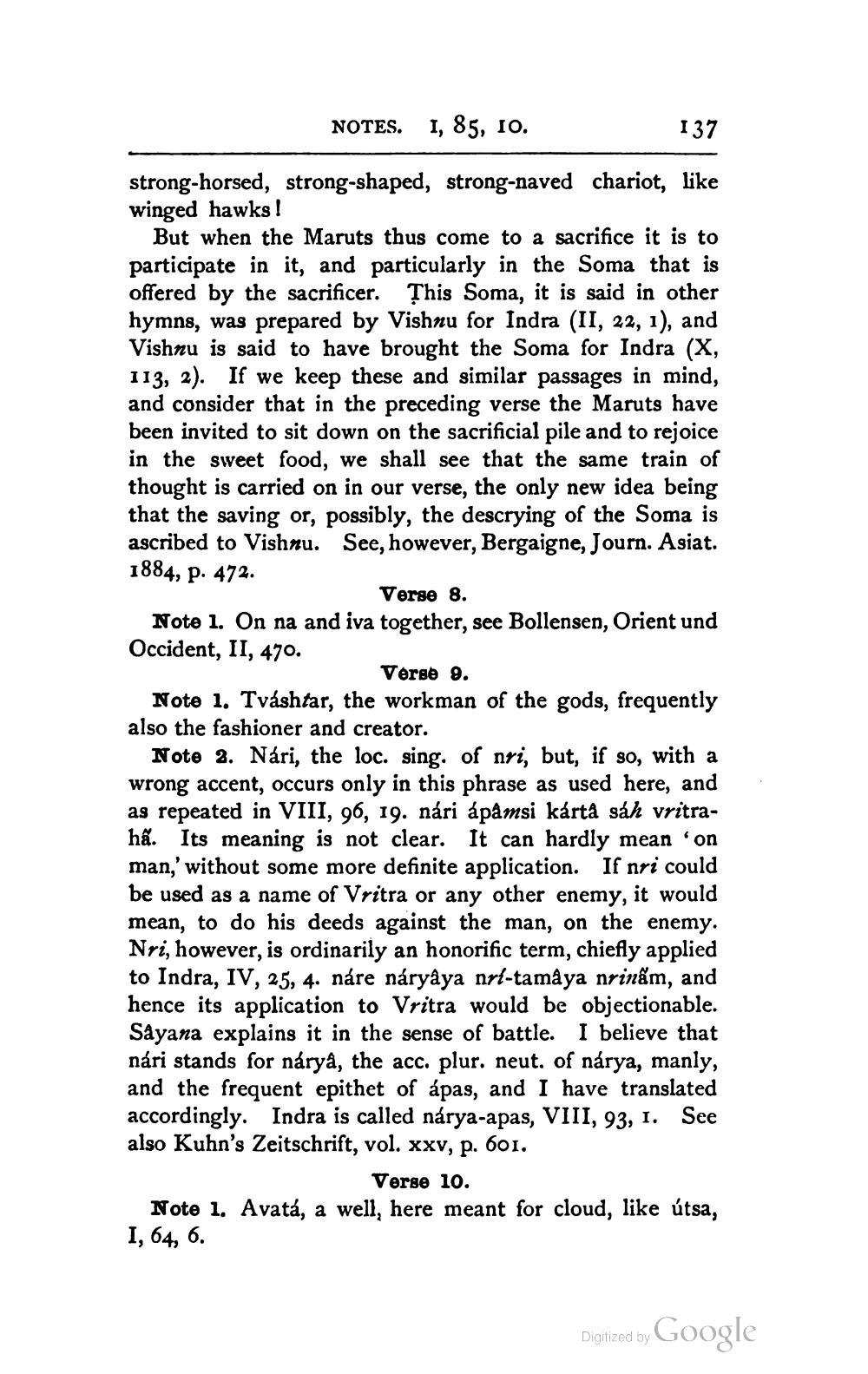________________
NOTES. 1, 85, 10.
137
strong-horsed, strong-shaped, strong-naved chariot, like winged hawks!
But when the Maruts thus come to a sacrifice it is to participate in it, and particularly in the Soma that is offered by the sacrificer. This Soma, it is said in other hymns, was prepared by Vishnu for Indra (II, 22, 1), and Vishnu is said to have brought the Soma for Indra (X, 113, 2). If we keep these and similar passages in mind, and consider that in the preceding verse the Maruts have been invited to sit down on the sacrificial pile and to rejoice in the sweet food, we shall see that the same train of thought is carried on in our verse, the only new idea being that the saving or, possibly, the descrying of the Soma is ascribed to Vishnu. See, however, Bergaigne, Journ. Asiat. 1884, p. 472.
Verse 8. Note 1. On na and iva together, see Bollensen, Orient und Occident, II, 470.
Verse 9. Note 1. Tváshtar, the workman of the gods, frequently also the fashioner and creator.
Note 2. Nári, the loc. sing. of nri, but, if so, with a wrong accent, occurs only in this phrase as used here, and as repeated in VIII, 96, 19. nári ápåmsi kártà sáh vritrahã. Its meaning is not clear. It can hardly mean 'on man,' without some more definite application. If nri could be used as a name of Vritra or any other enemy, it would mean, to do his deeds against the man, on the enemy. Nri, however, is ordinarily an honorific term, chiefly applied to Indra, IV, 25. 4. náre náryâya nrl-tamaya nrinăm, and hence its application to Vritra would be objectionable. Sayana explains it in the sense of battle. I believe that nári stands for nárya, the acc. plur. neut. of nárya, manly, and the frequent epithet of ápas, and I have translated accordingly. Indra is called nárya-apas, VIII, 93, 1. See also Kuhn's Zeitschrift, vol. xxv, p. 601.
Verse 10. Note 1. Avatá, a well, here meant for cloud, like útsa, I, 64, 6.
Digitized by
Digized by Google




